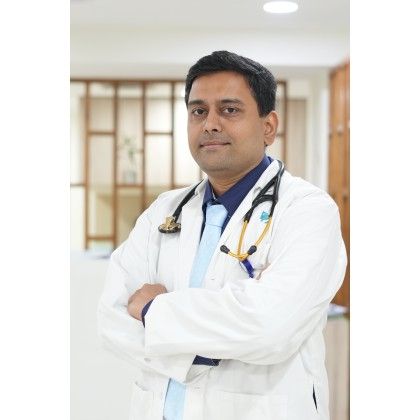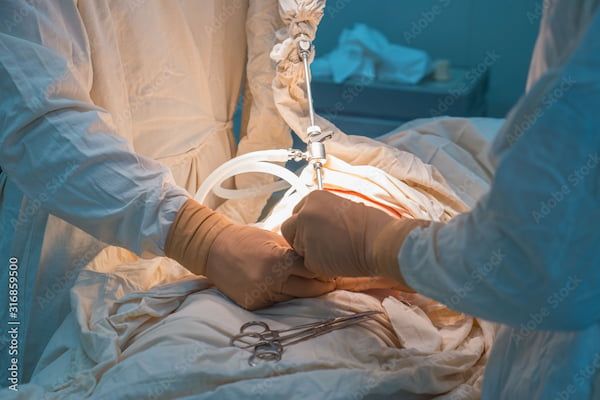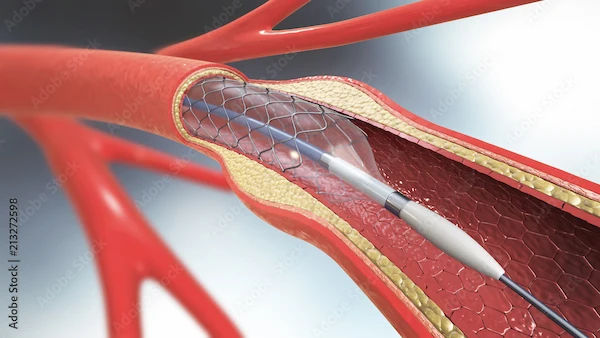What Leads To Heart Attacks In Young People And Early Signs?
Discover the causes of heart attacks in young people, including lifestyle and genetic factors. Learn to recognize early warning signs and understand when to seek immediate medical attention.

Written by Dr. J T Hema Pratima
Reviewed by Dr. D Bhanu Prakash MBBS, AFIH, Advanced certificate in critical care medicine, Fellowship in critical care medicine
Last updated on 13th Jan, 2026

When we picture a heart attack victim, we often imagine someone older. However, a troubling and growing trend is seeing more young adults, even those in their 20s and 30s, experiencing these life-threatening events. A heart attack, or myocardial infarction, occurs when blood flow to the heart is blocked, often by a clot. While traditional risk factors like age and family history play a role, modern lifestyle choices are significantly driving this increase among the youth. This article delves deep into the silent causes of heart attacks in young people, the subtle and not-so-subtle early signs you must never ignore, and the crucial steps for prevention. Understanding these factors can empower you to take control of your cardiovascular health today.
Understanding the Rising Trend of Heart Attacks in the Young
The data is clear: cardiovascular events are no longer exclusive to the elderly. Studies, including one published in the Journal of the American Heart Association, show a steady increase in heart attack hospitalisation rates for adults under 45, particularly among women. This shift is primarily attributed to the rise in prevalence of cardiometabolic risk factors at a younger age. Unlike older patients who often have a lifetime of plaque buildup, younger heart attack victims frequently have a different pathology. Their arteries may not be as narrowed, but a single, unstable plaque can rupture, causing a sudden and large clot that completely blocks blood flow. This makes the event often more catastrophic and unexpected.
Primary Causes and Risk Factors for Young Adults
The causes are multifactorial, blending lifestyle, genetics, and underlying conditions.
Lifestyle and Environmental Factors
Modern living creates a perfect storm for heart disease.
Poor Diet: High consumption of processed foods, sugars, and trans fats leads to obesity, high cholesterol, and hypertension.
Physical Inactivity: Sedentary jobs and lifestyles contribute to weight gain and poor cardiovascular conditioning.
Chronic Stress: Constant high stress increases cortisol and adrenaline, raising blood pressure and promoting inflammation.
Smoking and Vaping: Nicotine constricts blood vessels, and chemicals in tobacco and vape juice damage the lining of arteries.
Substance Abuse: Stimulants like cocaine and amphetamines can cause immediate coronary artery spasms, leading to a heart attack in a young adult.
Underlying Health Conditions
Many young people live with undiagnosed conditions that are silent killers.
Genetic High Cholesterol (Familial Hypercholesterolemia): This inherited condition causes extremely high LDL ("bad") cholesterol levels from a young age.
Undiagnosed Hypertension: High blood pressure is often called the "silent killer" because it has no symptoms but relentlessly damages arteries.
Diabetes and Pre-Diabetes: High blood sugar levels injure blood vessels and the nerves that control the heart.
Undetected Blood Clotting Disorders: Conditions that make the blood more prone to clotting can increase risk.
Genetic Predisposition and Family History
If a first-degree relative (parent or sibling) had an early heart attack (men before 55, women before 65), your risk is significantly elevated. This isn't just fate; it often points to shared genetic factors for high cholesterol or hypertension, as well as shared lifestyle habits.
Recognising the Early Warning Signs and Symptoms
Young people often dismiss symptoms, attributing them to stress, indigestion, or fatigue. This delay can be fatal.
Classic Heart Attack Symptoms
These should never be ignored, regardless of age.
Chest Pain or Discomfort: Often described as pressure, squeezing, fullness, or pain in the center of the chest that lasts more than a few minutes or goes away and comes back.
Pain in Other Areas of the Upper Body: Discomfort in one or both arms, the back, neck, jaw, or stomach.
Shortness of Breath: This can occur with or without chest discomfort.
Cold Sweat, Nausea, or Lightheadedness.
Atypical Symptoms More Common in Young People
Younger individuals, especially women, may experience less obvious signs.
Unexplained, Profound Fatigue: A sudden feeling of being completely drained, not linked to exertion.
Heartburn, Indigestion, or Abdominal Pain: Often mistaken for gastrointestinal issues.
Dizziness or Fainting.
Anxiety or a Sense of Impending Doom.
Consult Top Specialists
Why Are Young Hearts Vulnerable?
The physiology of a heart attack in a 20-year-old can differ from that of an 80-year-old. Older patients typically have chronic, calcified plaque that narrows the artery over time. Younger victims often have softer, more unstable plaque that can suddenly rupture. When it ruptures, the body's clotting mechanism goes into overdrive, forming a large clot that abruptly blocks the artery. Because the heart muscle of a younger person hasn't had time to develop "collateral" blood vessels (alternative pathways for blood flow), the blockage can cause more severe damage to a larger area of heart muscle.
Prevention Strategies: Safeguarding Your Heart Health
The best treatment is prevention. Up to 80% of premature heart disease is preventable.
Dietary and Exercise Modifications
Adopt a Heart-Healthy Diet: Focus on fruits, vegetables, whole grains, lean proteins, and healthy fats (like those in avocados and nuts). Limit sodium, sugar, and saturated fats.
Move Regularly: Aim for at least 150 minutes of moderate-intensity aerobic exercise (like brisk walking) or 75 minutes of vigorous exercise (like running) per week.
Maintain a Healthy Weight: Calculate your BMI and aim to keep it within the normal range (18.5-24.9).
Importance of Regular Health Screenings
You can't manage what you don't measure. Regular heart health check-ups are non-negotiable. This includes:
Blood Pressure Measurement (at least once every two years).
Cholesterol Panel (Lipid Profile) (every 4-6 years for normal-risk adults, more often if high-risk).
Blood Glucose Tests.
If your numbers are off, or if your condition does not improve after trying these methods, book a physical visit to a doctor with Apollo24|7 for a personalised management plan. Apollo24|7 offers convenient home collection for tests like cholesterol panels or HbA1c (for diabetes).
Stress Management and Mental Well-being
Prioritise Sleep: Aim for 7-9 hours of quality sleep per night.
Practice Mindfulness: Meditation, deep breathing exercises, and yoga can significantly lower stress.
Stay Connected: Maintain strong social connections and seek help if you're feeling overwhelmed, anxious, or depressed.
What to Do in an Emergency?
If you or someone else experiences symptoms:
1. Call Emergency Services Immediately: Do not drive yourself to the hospital. Paramedics can start life-saving treatment on the way.
2. Chew an Aspirin: If you are not allergic, chewing a regular aspirin (325 mg) can help thin the blood and reduce the size of the clot.
3. Stay Calm and Rest: Sit or lie down while waiting for help.
4. Use an AED if Available: If the person loses consciousness and an Automated External Defibrillator is available, use it as directed.
Conclusion
The rise in heart attacks among young adults is a stark reminder that heart health is a lifelong journey, not a concern for later life. The power largely lies in our hands. By understanding the unique risks—from genetic predispositions and silent hypertension to the dangers of chronic stress and substance use—we can make informed choices. Recognising the early signs of a heart attack, even the atypical ones, can mean the difference between life and death. Commit to a heart-healthy lifestyle, know your numbers through regular screenings, and listen to your body. If symptoms persist beyond two weeks, or if you have concerning risk factors, consult a doctor online with Apollo24|7 for further evaluation and guidance. Your heart is your most vital asset; protect it proactively.
Consult Top Specialists
Consult Top Specialists

Dr. Anand Ravi
General Physician
2 Years • MBBS
Bengaluru
PRESTIGE SHANTHINIKETAN - SOCIETY CLINIC, Bengaluru

Dr. Tripti Deb
Cardiologist
40 Years • MBBS, MD, DM, FACC, FESC
Hyderabad
Apollo Hospitals Jubilee Hills, Hyderabad

Dr. Zulkarnain
General Physician
2 Years • MBBS, PGDM, FFM
Bengaluru
PRESTIGE SHANTHINIKETAN - SOCIETY CLINIC, Bengaluru

Dr. E Prabhakar Sastry
General Physician/ Internal Medicine Specialist
40 Years • MD(Internal Medicine)
Manikonda Jagir
Apollo Clinic, Manikonda, Manikonda Jagir
(150+ Patients)

Dr Gautam Naik
Cardiologist
12 Years • Senior ConsultMBBS, MD (General Medicine), DM (Cardiology), Interventional Cardiology Fellowship (Royal Papworth Hospital, Cambridge, UK), Structural Heart Intervention Fellowship (Barts Heart Centre, St Bartholomew's Hospital, London)
Delhi
Apollo Hospitals Indraprastha, Delhi
(50+ Patients)
More articles from Heart Attack
Frequently Asked Questions
Q1: Can a perfectly fit young person have a heart attack?
Yes. While fitness reduces risk, genetic factors like familial hypercholesterolemia, undiagnosed congenital heart conditions, or an acute trigger like substance abuse can lead to a heart attack in a healthy young person.
Q2: What is the most common symptom of a heart attack in a young woman?
Women are more likely than men to experience atypical symptoms like shortness of breath, unexplained fatigue, nausea/vomiting, and pain in the back, neck, or jaw, sometimes without any chest pain at all.
Q3: How can I tell the difference between a heart attack and a panic attack?
This can be difficult as both can cause chest pain, sweating, and shortness of breath. Key differences: Panic attack pain is often sharp/stabbing and localized, while heart attack pain is more often pressure/squeezing. Panic attacks also typically involve a overwhelming fear of dying. When in doubt, always seek immediate medical attention.
Q4: How often should a young adult get their heart checked?
If you have no risk factors, a baseline screening with blood pressure and cholesterol around age 20 is advised, repeating every 4-6 years. If you have risk factors (family history, smoking, high BP), you should be screened more frequently as advised by your doctor.
Q5: Are energy drinks linked to heart attacks in young people?
Potentially, yes. The high caffeine and stimulant content in energy drinks can cause a sudden spike in blood pressure and heart rate and may trigger arrhythmias or coronary spasms in susceptible individuals, especially when combined with alcohol or exertion.
_1.webp)
.webp)


.webp)